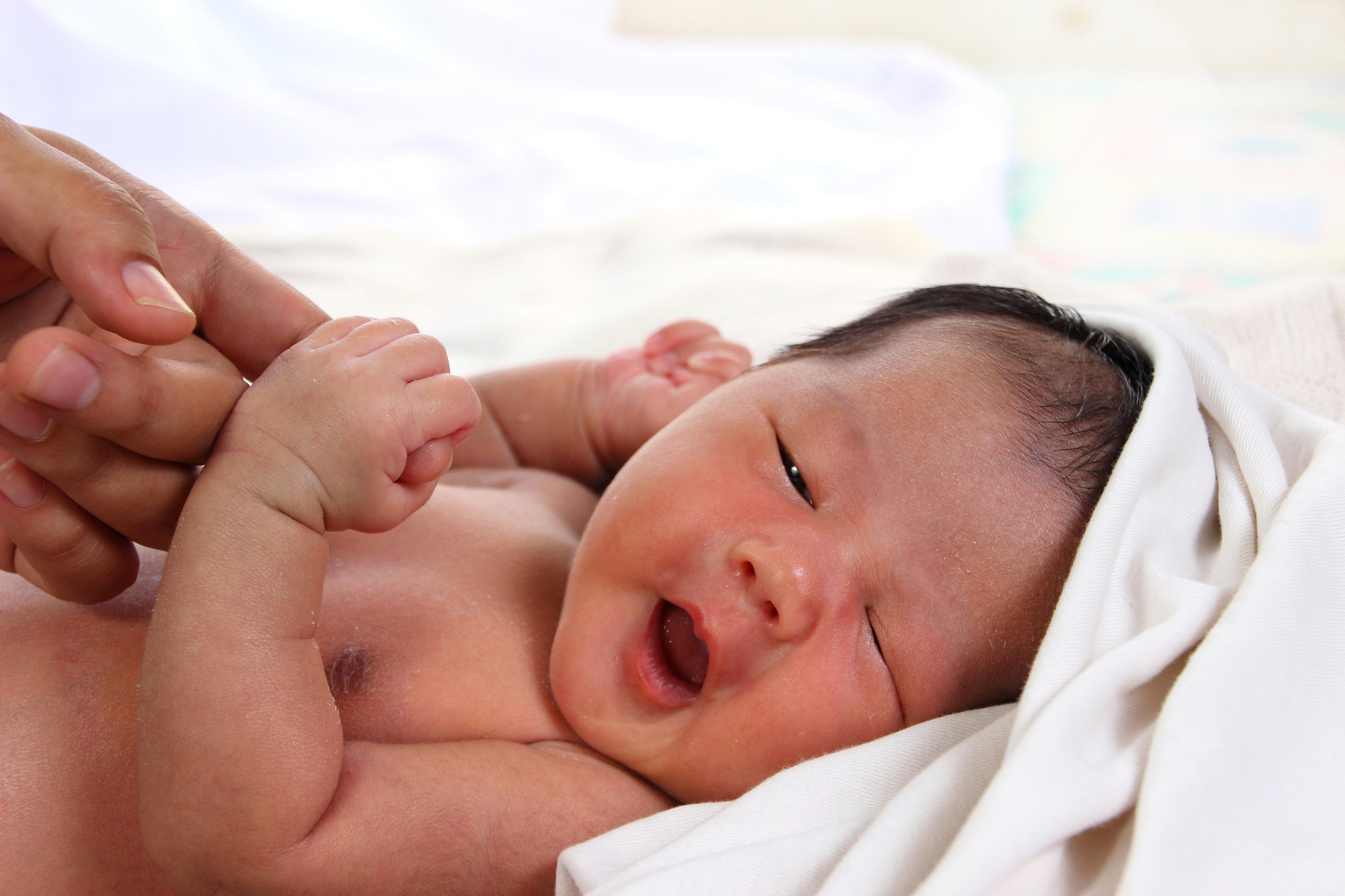Ms. C is a woman with a long history of bipolar disorder, dating back to her teen years. Because she experienced recurrent hypomania and mania every time she attempted to discontinue her treatment, she and her psychiatrist decided that she would remain on her regular regimen of medications during pregnancy and the postpartum period, which consisted of lithium carbonate 900 mg and quetiapine 100 mg at bedtime.
Ms. C returned to the office at 34 weeks of gestation. She reported that, in terms of mood, she had done well throughout her pregnancy without any adjustments in her medication. Overall, her sleep had been well-regulated; however, she noted that she was having more awakenings now that she was at the end of her pregnancy due to discomfort related to the pregnancy. In general, she was able to return to sleep within 15-30 minutes.
Ms. C expressed interest in breastfeeding and wondered if this would be an option given her current regimen of medications.
High Risk of Postpartum Relapse in Women with Bipolar Disorder
Based on observational data, we have observed that women with bipolar disorder are at high risk for relapse during pregnancy and that the risk is even higher during the postpartum period. In addition, women with bipolar disorder are at high risk for postpartum psychosis. It is for these reasons that we typically recommend that women with bipolar disorder maintain treatment with mood stabilizer during pregnancy and the postpartum period to decrease their risk for relapse during this vulnerable time.
One factor which may contribute to this heightened risk for relapse is that many women with bipolar disorder are very sensitive to sleep deprivation. Therefore, the sleep deprivation which inevitably occurs during the postpartum period may significantly increase a woman’s risk for recurrent illness. We recommend that all women, especially those with bipolar disorder, attempt to protect their sleep, by relying on their partners or other people for nighttime feedings, with the goal of getting at least one longer period of uninterrupted sleep each night (ideally 4-6 hours).
While breastfeeding has many benefits for both the mother and the newborn, exclusively breastfeeding can be quite demanding for the mother. On-demand breastfeeding typically requires breastfeeding every 2-3 hours. Especially when there are difficulties, this sort of feeding schedule can quickly lead to extreme sleep deprivation over the first few weeks. Although most women feel significant pressure to breastfeed exclusively, supplementing with formula is an excellent option for many women because it allows the woman to rely on others for feeding support and may enable her to get more sleep and reduce her risk for postpartum illness.
Is Lithium Safe for Breastfeeding?
Lithium taken by the mother is secreted into the breast milk, and lithium levels in breast milk are dependent on maternal serum lithium levels. Although there have long been concerns about the use of lithium in nursing mothers, a literature review published in 2000 reported only 2 cases (out of 11) of lithium toxicity. In addition, two cases of increased TSH in early infancy have been reported (Viguera et al., 2007; Bogen et al., 2002). In a case series of 10 nursing mother-infant pairs, lithium concentrations in breast milk varied between <0.1 and 0.51, on average 51% (range 17%-73%) of the maternal serum levels. Corresponding infant serum levels averaged 0.15 ± 0.07 mmol/L (range 0.09-0.30). Eight of the 10 infants had levels below 0.2 mmol/L. No cases of lithium toxicity or adverse events were reported.
Given the many benefits of breastfeeding, some women taking lithium may opt to nurse their infants. While we have little data regarding the long-term effects of exposure to lithium contained within the breast milk, it appears that the risk of serious adverse events in the nursing infant is relatively low. Nonetheless, infants are vulnerable to the same side effects as adults, including dehydration, changes in thyroid and renal functioning; thus, close clinical monitoring of infants exposed to lithium through breast milk is recommended. This monitoring should include measurement of the infant’s weight, lithium levels, TSH, BUN and creatinine every 6-8 weeks while the child is nursing.
What About Antipsychotic Medications Like Quetiapine?
While antipsychotic medications are used commonly in patients with bipolar disorder, our information regarding the use of these medications in breastfeeding women is limited (see review). At this point, we have the most data on olanzapine (Zyprexa) with a total of 40 exposures. While the data regarding the use of olanzapine in breastfeeding women are reassuring, we have much less information on exposures to other atypical agents: aripiprazole (2 infants), quetiapine (9 infants), risperidone (4 infants). Most reports observed no adverse events; however, two of the 9 infants exposed to quetiapine (both from the same study) showed mild developmental delays. There is no information on lurasidone (Latuda). Some might conclude that quetiapine may carry more risk than other atypical antipsychotics, but when the numbers are so small, this might be a chance finding.
Ms. C ultimately decided to breastfeed her infant. Given that there was less information available on the use of quetiapine in this setting and limited data on the long term effects of lithium, she decided that she would breastfeed for a shorter period of time, for the first postpartum month. In addition, she and her husband decided to supplement with formula, which gave her more flexibility with regard to sleep.
Ruta Nonacs, MD PhD
Pacchiarotti I, León-Caballero J, Murru A, Verdolini N, Furio MA, Pancheri C, Valentí M, Samalin L, Roigé ES, González-Pinto A, Montes JM, Benabarre A, Crespo JM, de Dios Perrino C, Goikolea JM, Gutiérrez-Rojas L, Carvalho AF, Vieta E. 2016. Mood stabilizers and antipsychotics during breastfeeding: focus on bipolar disorder. Eur Neuropsychopharmacol: Aug 24; [Epub ahead of print]. Review.
Viguera AC, Nonacs R, Cohen LS, Tondo L, Murray A, Baldessarini RJ. 2000. Risk of recurrence of bipolar disorder in pregnant and nonpregnant women after discontinuing lithium maintenance. Am J Psychiatry 157:179-184.
Viguera AC, Newport DJ, Ritchie J, Stowe Z, Whitfield T, Mogielnicki J, Baldessarini RJ, Zurick A, Cohen LS. 2007. Lithium in breast milk and nursing infants: clinical implications. Am J Psychiatry: Feb; 164(2):342-5.
Bogen DL, Sit D, Genovese A, Wisner KL. 2012. Three cases of lithium exposure and exclusive breastfeeding. Arch Womens Ment Health: Feb; 15(1): 69-72.







Leave A Comment